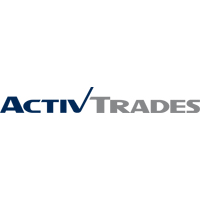The finance industry is always a canary in the coal mine for new technology. This is because information processing is the central function of financial markets.

But a rigid legacy banking core, poor data governance and outmoded operating models stand in the way of intelligent automation. The best approach is to create fit-for-AI processes.
What is Artificial Intelligence (AI)?
AI is a collection of software tools that automate tasks and provide insights. It uses machine learning algorithms to collect data, identify patterns and trends, and make predictions. It is widely used in stock market trading to improve efficiency and accuracy.
AI systems can spot price discrepancies and make split-second decisions based on information that human traders would miss. They can also detect and predict fraudulent activities with greater speed than humans. This enables them to maintain market integrity and investor confidence.
While Quantum AI offers significant benefits, it is important to keep in mind that these technologies are not foolproof. It’s essential to do your research, choose reliable AI tools, and work with human financial advisors. It is also important to stay up to date on the latest developments in AI.
How is AI Changing Trading?
With the burgeoning growth of artificial intelligence (AI) and machine learning (ML), there are numerous benefits for the financial industry, especially in trading. Automation and advanced algorithms reduce business costs while enhancing performance. AI and ML are also perfect for automating repetitive tasks and freeing up human operators to focus on more complex work.
Another benefit of AI in trading is its ability to monitor large amounts of data and identify trends faster than humans. This allows traders to spot risks and opportunities more quickly, ensuring regulatory compliance.
Finally, AI can help automate trading processes, reducing the likelihood of manual intervention and freeing up time for strategy reviews. However, it’s important for traders to maintain a balance between automation and oversight. Over-reliance on AI could lead to complacency, which could result in unmonitored trades or missed opportunities. Also, AI models are trained with historical data that can be biased towards certain types of trades. This can create a potential for unethical and unfair trading practices.
What is the Future of AI in Trading?
The future of AI in trading is incredibly bright, with new applications being developed all the time. The technology allows traders to quickly analyze massive amounts of data and make decisions more intelligently. It also helps them spot potential risks in the market and reduce their risk exposure.
One of the most exciting uses of AI in trading is using advanced machine learning techniques to develop prediction models. This technology is able to analyze news articles, social media posts, and other information sources to detect patterns and predict market trends.
In addition to these predictive models, AI is also enabling traders to automate some processes, such as algorithmic trading. This can reduce the cost of trading and increase its accessibility for individuals. However, it is important for traders to keep in mind that the use of AI in trading should be done responsibly and with ethical considerations. Otherwise, they may run into trouble with regulatory authorities or lose their reputation in the forex industry.
What are the Benefits of AI in Trading?
In the trading sector, AI is helping to make the process of trading faster and easier. AI can help traders analyze large data sets and identify patterns that can lead to more accurate predictions and better trading decisions. AI also helps reduce the amount of manual work needed, saving traders time and money.
However, the use of AI in trading comes with some risks. One risk is that AI can be biased if it is trained on the wrong data. Another risk is that AI can be prone to “overfitting” and finding complex linkages that are actually noise in the data.
To mitigate these risks, finance leaders need to design processes that are fit for AI and implement them in an agile way. This means modernizing core banking systems and establishing an API strategy to govern access to data from internal and external services. It also means creating a DevOps approach to build, test, and deploy AI models and other tech products quickly and repeatedly.

 Hot Features
Hot Features













